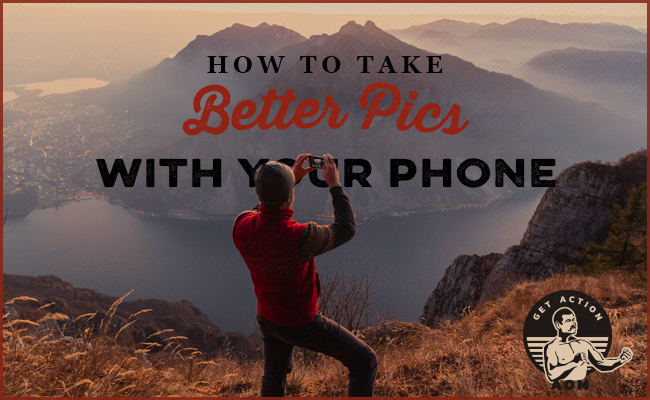
A couple months ago my fancy DSLR camera that I use for work purposes crapped out on me. It was a decade old so it wasn’t too surprising. The question, then, was whether to buy another professional camera or just upgrade to an iPhone Pro. After plenty of research, I came to the conclusion that the difference in quality and functionality for the layman photographer (which includes me; I take photos for work, but taking photos isn’t my job) between a pro camera and a smartphone camera just isn’t great enough to justify having two separate pieces of tech.
The smartphone cameras of 2020 are true wonders of technology. Not only is the photo quality exceptional, but the free editing functions are akin to software that used to cost hundreds of dollars. Unless you’re a professional photographer (or a very serious amateur), there just isn’t much need to venture beyond the device in your pocket.
Yet even with its suite of built-in features, taking great pictures with your phone isn’t necessarily easy or intuitive. After I got an iPhone Pro, I took a couple classes to get the hang of the phone as well as learn some basic photography skills and I’ve been thrilled with the results. Below are what I consider the simplest and most effective tips to upgrade the photos you’re taking with your smartphone.
1. Use Grid Lines (At First)

One of the classic tenets of photography (and most visual art mediums) is the “rule of thirds.” An image should be broken into thirds, both horizontally and vertically. As a grid, this makes for nine squares. Your instinct is probably to put the main subject of your photo right in the center. Don’t do that. Instead, place the subject — whatever you’re trying to take a picture of and draw people’s eyes to — near one of the four intersecting points.
To get acquainted with using the rule of thirds, you can easily make those grid lines show up right on your camera screen:
iPhone: “Settings” —> “Camera” —> toggle “Grid” on Android: from Camera app, go to “Settings” —> scroll down to “Grid Lines” and toggle onOnce you get used to the grid, you’ll naturally get better at composing your photos, and you can turn the grid lines off.
In addition to helping you follow the rule of thirds, using grid lines also helps accomplish another key tenet of good photography (and design in general): embracing negative/white space. Rather than filling up the entire photo with your main subject, you want to leave white space around it, which actually better draws the eye towards your focal point. Whether you’re taking a picture of a person, a mountain, or a plate of food, the primary focus of the photo, in most cases, shouldn’t compose more than ⅓ to ½ of the total area in your frame.
Look at the photo above. By using the rule of thirds and placing the
No comments:
Post a Comment